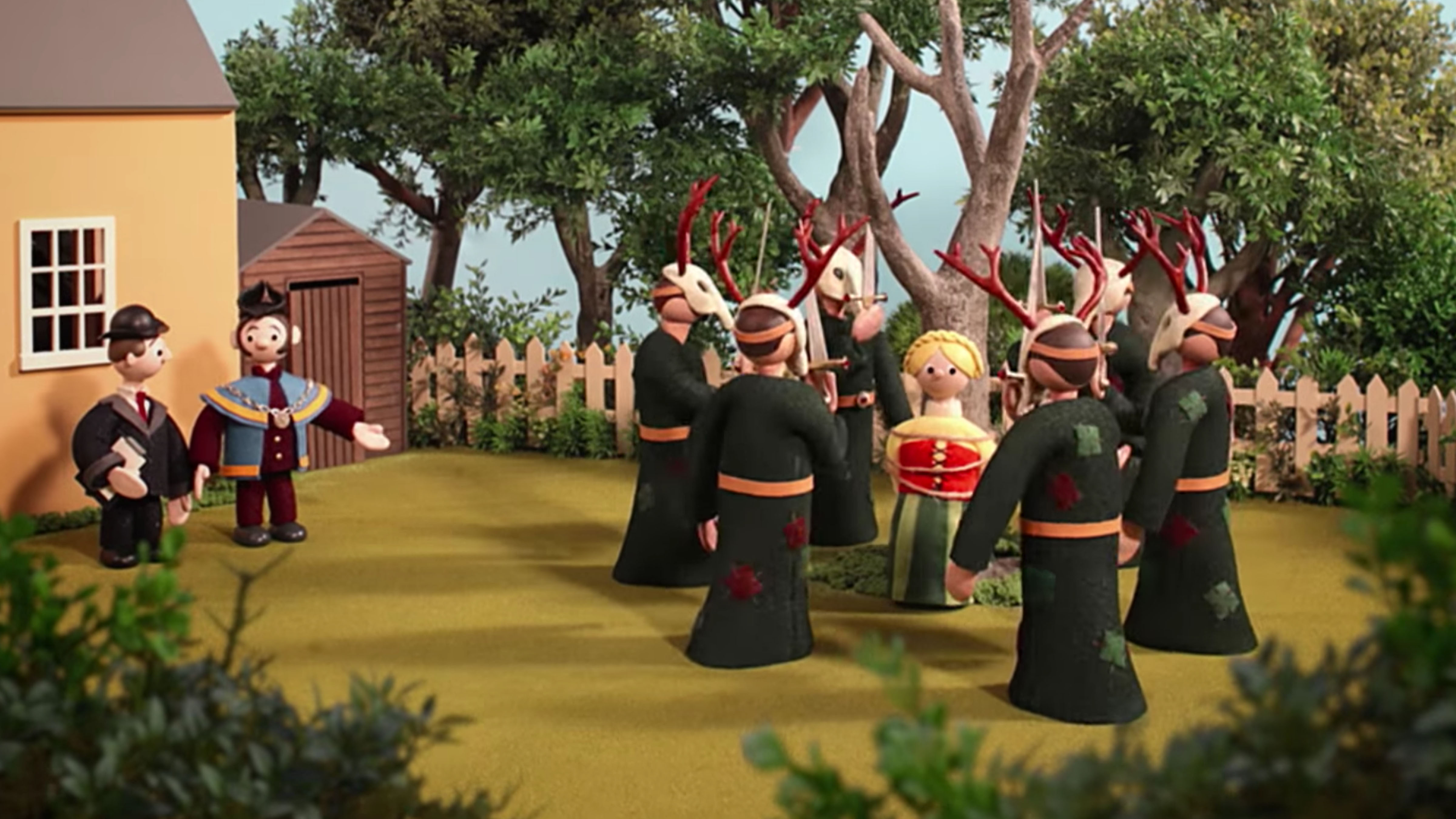What’s the inverse of a shockwave? Or, is there a word for the sensation of all matter disappearing and drawing the world into a central non-space with it? Ah: the black hole. Not exactly a set of positive connotations to that word, but Radiohead’s retreat from the Internet over the past few days nevertheless served to draw us in, eager to take a closer look as their presence disappeared in granular fashion. And now here we all are, standing in the fallow plot of Radiohead’s Twitter, staring at the totem. “Burn the Witch.”
The band’s latest single (which is accompanied by an appropriately discomfiting video, which you can watch below) comes only a few weeks before they begin their first US tour since 2012, fueling speculation that their ninth album is imminent. There have been rumors flying since at least last October, when it was discovered that the group had created the mysterious shadow company Dawn Chorus LLP—a revelation up there with college football fans’ regular tracking of private jets on FlightAware during new-hire season as far as maniacal demonstrations of fandom go.
It goes without saying that no band inspires this kind of thing the way Radiohead do. Other artists delete their Twitter accounts, but we don’t invest their actions with nearly the significance we do when Radiohead does it. Which is fair! Because while other artists might know how to use the media as a reporting apparatus, very few have figured out how to manipulate our current modes of information delivery at their very core. Quietly and patiently scrubbing their web presence guaranteed not only that Radiohead would draw eyeballs to their online properties, but that the number of onlookers would increase in proportion to the deletion until we’re all standing there together, having been drawn by a single idea to a single space. And they said the Internet fragmented our society.
All of this would be a brilliant marketing campaign if it were only a marketing campaign. But watching Chris Hopewell’s alarming claymation video for “Burn the Witch” feels like standing in front of a virtual black mirror. Here we are, in 2016, with greater opportunities for connectivity at our fingertips than we’ve ever had before. We have moved beyond the primitivism of religion, beyond the guilt that necessitates sacrifice, beyond the small-town mentality that suffocates dissenting thought. And as we stand here, in the band’s heavily pruned vineyard, watching the residents of Hopewell’s Model Village follow the tips of their pitchforks to their logical end, we do best to keep the inevitable arrogance of historical distance in mind. Radiohead released “Burn the Witch” right into the town square.









